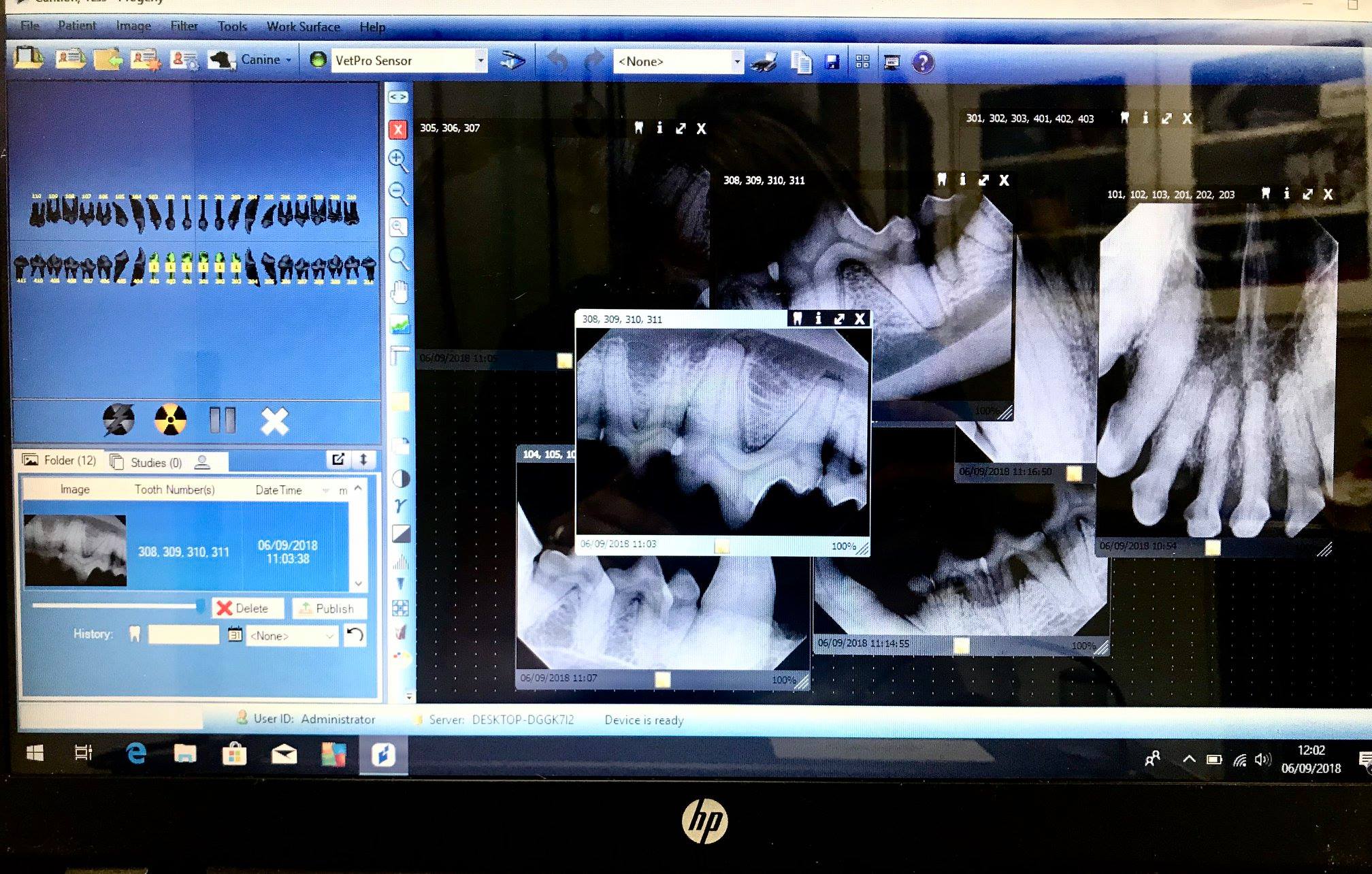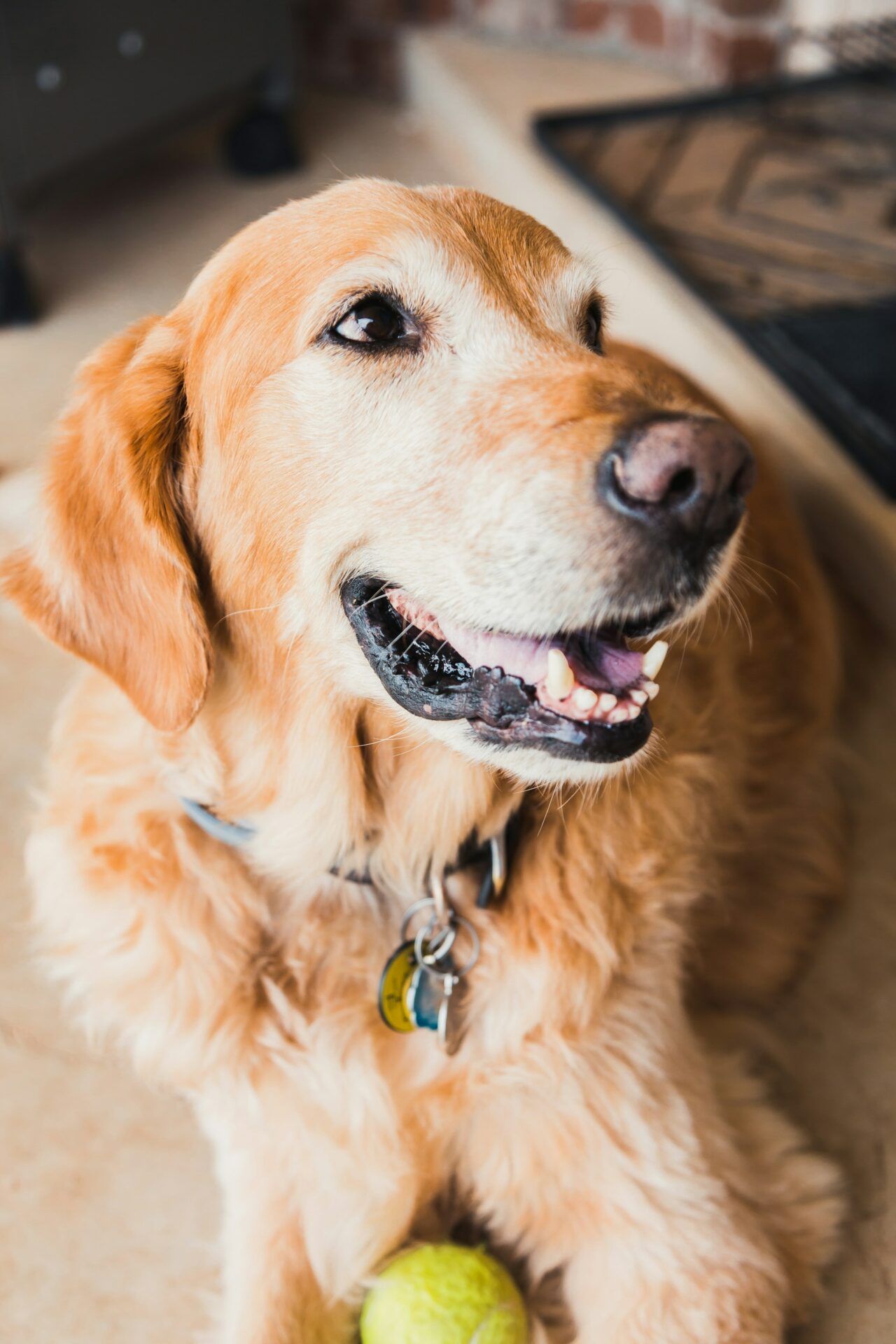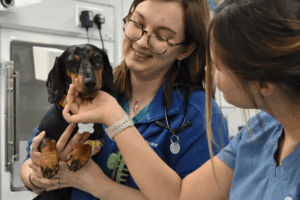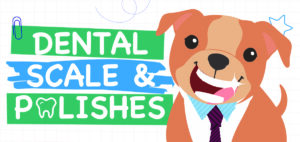Pet dental care is just as important as brushing teeth twice a day is to us humans!
Preventative care is key to helping prevent the build-up of tartar, reduce the risk of tooth decay and gum disease, and prevent discomfort and pain.
Pet dental care at St Kitts Vets
Our fully equipped practices enable our veterinary surgeons to diagnose and treat a range of dental conditions. We have state-of-the-art facilities, including:
- Dedicated dental suites
- Descaling and polishing equipment
- Dental X-rays for teeth and bone examinations
- Dentistry equipment for tooth extraction and other dental procedures
- Separate patient recovery wards for cats and dogs
How can poor dental care affect my pet?
Poor dental health can cause problems for pets, with some of the most common symptoms including:
- Bad breath
- Visible build-up of plaque and tartar
- Difficulty eating, such as dropping food out of mouth or chewing only on one side
- Excessive drooling
- Discoloured teeth
- Swelling around the mouth or the face
- Inflamed or bleeding gums
- Loose teeth
- Rubbing or pawing their face
- Discomfort and pain
How can I look after my pet’s teeth?
We recommend brushing your cat’s and dog’s teeth daily and providing them with a partially dry diet, including hard biscuits, which are particularly effective at removing plaque. We can also advise on products to help reduce plaque build-up and bad breath.
When it comes to dental treats, these should be given in moderation, as many can be high in calories.
What about rabbits?
Unlike cats and dogs, rabbit’s teeth continue to grow throughout their lives; this can lead to additional dental concerns. Providing a high fibre diet and encouraging chewing is central to ensuring that a rabbit’s teeth remain healthy, however; it is important to have regular dental checks in order to spot any potential problems early.
If a rabbit does not eat enough fibrous food to wear down the growing teeth or the teeth are misaligned for any reason, they can become overgrown and dig into the soft tissue of the mouth, causing pain and preventing the rabbit from eating properly.
Sings of dental disease in rabbits are similar to those seen in cats and dogs such as:
- Reduced appetite or not eating
- Difficulty eating, such as dropping food out of mouth
- Excessive dribbling causing the rabbit to have a wet chin or front legs
- Swelling around the mouth or the face
- Rubbing at their face
- Discomfort and pain
- Reduced grooming
To fully examine the mouth, the vet will need insert a small scope into the rabbits mouth to visualise the cheek teeth. This can be done in a consultation and is not painful.
Get 10% off dentals with our Pet Healthcare Plans!
Our Pet Healthcare Plans are designed to save you money by spreading the cost of routine and preventative treatment with low monthly payments.
Members get access to exclusive discounts on products and services at St Kitts Vets, including dentals, neutering and our in-house laboratory.
Additional benefits include:
- Annual vaccinations
- Bi-annual health checks
- Flea, tick* and worming products delivered to your door
- Free microchip
- Nail trims
- 10% discount on selected food
*Tick control included with Plus Plans only.
Sign up today and start saving!
If you have concerns about your pet’s teeth, please book a consultation online or contact your local St Kitts practice immediately.






